A well-balanced daily nutrition diet chart is essential for athletes, especially beginners, to enhance performance, increase endurance, and support recovery. Proper nutrition plays a critical role in fueling your body, preventing injuries, and maintaining energy throughout the day. As a beginner athlete, understanding your daily nutrition needs will help you establish a strong foundation for your athletic journey. Whether you're into endurance sports or strength training, fueling your body right can make all the difference.
Essential Daily Nutrition Diet Chart for Athlete Performance
Good nutrition is a key component of athletic success. For beginner athletes, it can be confusing to navigate the sea of advice on what and when to eat. A daily nutrition diet chart can simplify this process and ensure you’re getting the nutrients your body needs. This guide provides essential information on how to structure your meals, important tips to meet your daily nutrition needs, and strategies to overcome common challenges faced by beginner athletes.
Core Nutrients: Building Blocks for Athlete Performance

To support an active lifestyle, athletes need a variety of nutrients to fuel their workouts and help their bodies recover. Here's a breakdown of the essential nutrients that should be part of your daily diet:
Carbohydrates
Carbohydrates are the primary energy source for athletes. They fuel your muscles and provide the stamina required during intense physical activity. You can get your carbs from whole grains like oats, brown rice, and quinoa, as well as fruits and vegetables. Including carbohydrates in your daily nutrition diet chart helps maintain optimal energy levels throughout the day.
Proteins
Proteins are crucial for muscle repair and growth, making them an essential nutrient for athletes. Consuming sufficient protein helps your body recover after exercise and builds lean muscle mass. Protein shakes are also a convenient option for athletes seeking quick recovery and muscle repair. Proper protein intake supports overall performance and reduces the risk of muscle fatigue. Including it in your daily diet is key to achieving fitness goals effectively.
Healthy Fats
Healthy fats play a significant role in overall health by supporting cell function and hormone production. They also provide long-lasting energy for extended physical activities. Include sources of healthy fats like avocados, nuts, seeds, and olive oil in your daily diet to maintain energy and support overall body function.
Micronutrients
Vitamins and minerals may not provide energy, but they are essential for maintaining various body functions. Vitamin D, calcium, magnesium, and potassium are essential for maintaining bone health, muscle function, and proper hydration. Incorporate leafy greens, fruits, dairy, and fortified cereals into your daily nutrition diet to ensure you’re meeting your micronutrient needs.
Antioxidants
Antioxidants help protect your body from oxidative stress caused by intense physical exertion. Foods rich in antioxidants, such as berries, spinach, and nuts, can help reduce inflammation, improve muscle recovery, and support overall health, vitality, and immunity.
Fiber
Fiber plays a vital role in digestive health and helps manage blood sugar levels. Whole grains, legumes, vegetables, and fruits are all excellent sources of fiber. Make sure to include them in your daily nutrition diet chart to ensure proper digestion, satiety, and overall well-being.
TIPS for Meeting Daily Nutrition Needs
Maintaining a balanced diet can be difficult, particularly for beginners. Here are some practical tips to help you meet your daily nutrition needs:
Track Daily Intake

Tracking your food intake can help you understand whether you're meeting your nutritional requirements. Use apps to log your meals and monitor your macronutrient intake to ensure you are getting enough carbohydrates, proteins, and fats. This practice can highlight areas where you may need to adjust your diet.
Listen to Your Body Signals

Listen to your body's signals for hunger and energy levels. If you’re feeling fatigued, it could be a sign that your nutrition needs adjustment. Similarly, if you’re feeling too full, you might be over-consuming. Learning to listen to your body helps prevent overeating and ensures you're fueling it appropriately.
Adjust for Training Intensity

Your nutrition needs may vary depending on the intensity of your workouts. For higher-intensity training, you may need more calories, especially from carbohydrates and protein, to support energy demands and muscle recovery. Be sure to adjust your daily nutrition diet chart according to your training regimen.
Incorporate Nutritional Education

Educating yourself about proper nutrition is a crucial step for any beginner athlete. Learn about the different food groups, portion sizes, and the importance of hydration. Nutrition education can help you make informed choices and fuel your body effectively.
Daily Nutrition Diet Chart: Structuring Your Meals
A structured daily nutrition diet chart can simplify meal planning and ensure you’re getting all the nutrients you need. Here’s an example of what your diet chart could look like:
|
Meal Time |
Food Options |
|
|
Early Morning |
1 glass of warm water with lemon for detox, followed by a handful of soaked almonds |
|
|
Breakfast |
Oatmeal with chia seeds, fresh fruits, and a handful of nuts for sustained energy |
|
|
Mid-Morning Snack |
Smoothie made with bananas, spinach, and a teaspoon of chia or flax seeds |
|
|
Lunch |
Brown rice or quinoa, a bowl of lentils, sautéed vegetables, and a side salad with olive oil |
|
|
Afternoon Snack |
A bowl of mixed nuts or a fruit like apple/pear |
|
|
Pre-Workout |
Whole-grain bread topped with peanut butter or a banana. |
|
|
Post-Workout |
Protein shake with Explosive Whey Athlete Series Whey Protein, blended with almond milk and berries |
|
|
Dinner |
Sweet potatoes, steamed vegetables, and a bowl of chickpea curry or lentil soup |
|
|
Before Bed |
Warm almond milk with a pinch of turmeric for muscle recovery |
Overcoming Common Nutritional Challenges
As a beginner athlete, you may face several challenges when it comes to meeting your nutritional needs. Below are some typical challenges and ways to tackle them:
Meal Preparation for Busy Schedules
When training and commitments fill your schedule, efficient meal preparation becomes essential. Try setting aside one day each week for preparing simple, mix-and-match ingredients, like roasted vegetables, lean proteins, and whole grains, which can be assembled into different meals. Consider also pre-chopping ingredients for salads or stir-fries, so cooking is quicker on busy days.
Navigating Dietary Restrictions
Some athletes may have dietary restrictions due to allergies, intolerances, or preferences (e.g., gluten-free or lactose-free). Ensure that your daily nutrition chart includes suitable alternatives. For instance, gluten-free grains or dairy-free options can be included without compromising nutrition. Being mindful of substitutions keeps your meals aligned with your dietary needs and fitness goals.
Explore Diverse Food Options
To make sure you’re getting a variety of nutrients, explore different cuisines and food options. Experimenting with new recipes can make eating healthy and enjoyable and prevent dietary boredom. Including various foods also helps meet a wide range of nutrient requirements essential for athletic performance.
Staying Motivated on Your Diet
Sticking to a strict nutrition plan can be challenging. To stay motivated, set achievable nutrition goals, treat yourself occasionally with a healthy snack, and remember why you’re fueling your body correctly—whether it’s to enhance your athletic performance or achieve long-term health goals.
Strategies for Incorporating Variety in Daily Nutrition

Variety adds excitement to life—and is also essential for a balanced diet. Here are ways to add more variety to your daily nutrition diet chart:
Explore Different Protein Sources
Include a mix of protein sources in your diet to ensure you're getting a complete amino acid profile. Protein supplements can complement your meals and provide a convenient source of protein after workouts. Incorporating diverse sources of protein in your meals will help with muscle repair, immune function, and overall health.
Experiment with Whole Grains
Whole grains such as quinoa, brown rice, and barley provide fiber, vitamins, and essential minerals. Consider replacing refined grains with whole grains to boost your nutrient intake and support digestive health. These grains are also rich in antioxidants and promote satiety, making them an excellent choice for weight management. Incorporating them into your diet can also support long-term heart health.
Add Seasonal Fruits and Vegetables
Eating a variety of fruits and vegetables, especially seasonal ones, ensures you’re getting the nutrients your body needs. Seasonal produce often has higher nutrient density and can add exciting flavors to your meals. Consuming a wide range of colors in your fruits and vegetables also helps in obtaining diverse micronutrients and antioxidants.
Try New Cooking Methods and Recipes
Experimenting with cooking methods like grilling, steaming, or roasting helps retain nutrients and enhance flavor. These techniques use less oil, preserving essential vitamins and minerals. Pair your meals with protein supplements when necessary for added support in recovery and muscle growth. This combination can help fuel your body while giving your meals a fresh twist:
Whey Protein: Blend 1 scoop of Whey Protein with almond milk, banana, and a spoonful of peanut butter for a post-workout shake.
Creatine: Mix 1 serving of Creatine with water or your protein shake to boost muscle strength and recovery.
Omega-3: Add 1 tablespoon of Omega-3 oil to your smoothie or salad for an extra boost of healthy fats.
Importance of Whole Foods over Processed Foods

Whole foods are nutrient-dense and provide a better quality of fuel for athletes compared to processed foods. Here’s why:
Nutritional Advantages of Whole Foods
Whole foods, such as fresh fruits, vegetables, lean meats, and whole grains, are packed with essential vitamins, minerals, and fiber that processed foods lack. They are nutrient-dense, meaning you get more beneficial nutrients per calorie, which is vital for overall health. Consuming a wide variety of whole foods can also improve your immune system, promote healthy skin, and support vital bodily functions.
Energy Levels and Performance
Whole foods provide sustained energy, improving athletic performance. They also promote better digestion and prevent blood sugar spikes and crashes, which processed foods can cause. The natural sugars in fruits and vegetables are absorbed more slowly, offering a steady release of energy. Whole foods also aid in muscle recovery, helping athletes perform at their best over longer periods.
Additives in Processed Foods
Processed foods often contain added sugars, preservatives, and artificial flavors that can affect performance, energy levels, and overall health. Minimizing processed food intake ensures your body gets the pure nutrients it needs. These additives can cause inflammation, disrupt hormone balance, and increase cravings for unhealthy foods. Choosing whole foods reduces the risk of these negative effects and supports a more balanced diet.
Long-Term Health Implications
Relying on processed foods may lead to health issues such as weight gain, heart disease, and diabetes. Whole foods, on the other hand, promote long-term health and better athletic performance. They are also associated with a reduced risk of chronic diseases and support healthy weight maintenance. By fueling your body with whole foods, you can enhance both mental and physical well-being for years to come.
Adopting Healthy Habits: Long-Term Nutrition for Success
Achieving long-term success in any athletic endeavor starts with a solid foundation of healthy habits, particularly nutrition. Maintaining proper nutrition, alongside regular training, ensures that your body is fueled properly, helping to sustain energy levels and optimize performance. Prioritize these habits and consistently make informed nutrition choices to maximize both short-term gains and long-term success in your athletic journey.
For beginner athletes, following a well-structured daily nutrition diet chart is essential for boosting performance and maintaining overall health. Focusing on nutrient-dense foods and balanced meals helps meet daily nutrition needs. Whole foods, quality protein sources, and supplements like protein powders support muscle recovery and growth. Healthy eating habits, adapted to workout intensity, help maintain energy levels and promote recovery. Committing to a structured diet plan fuels performance and lays the foundation for sustained athletic success.
FAQ
Q1) What is the daily nutrition for athletes?
Athletes need a balanced intake of carbs, proteins, healthy fats, and essential vitamins for energy, muscle repair, and recovery. Staying hydrated and including key micronutrients also supports overall health and peak performance.
Q2) What is good sports nutrition for beginners?
Beginners benefit from whole foods rich in complex carbs, lean proteins, and healthy fats. Balanced pre-and post-workout meals provide energy and aid recovery, setting a solid foundation for performance.
Q3) How to meal plan for athletes?
Athletes should plan meals around workouts, focusing on complex carbs and lean proteins for energy and recovery. Preparing meals in advance and rotating options keeps nutrition balanced and convenient.
Q4) What role do supplements play in an athlete's daily nutrition?
Supplements provide nutrients that can be challenging to get from food alone, like additional protein for faster muscle recovery. They’re best used to support, not replace, a varied and balanced diet.
Q5) How can athletes ensure they meet their daily nutrition needs?
Tracking intake, adjusting portions for training intensity, and eating a variety of nutrient-dense foods help athletes meet daily needs. Proper hydration and occasional supplements also support optimal nutrition.

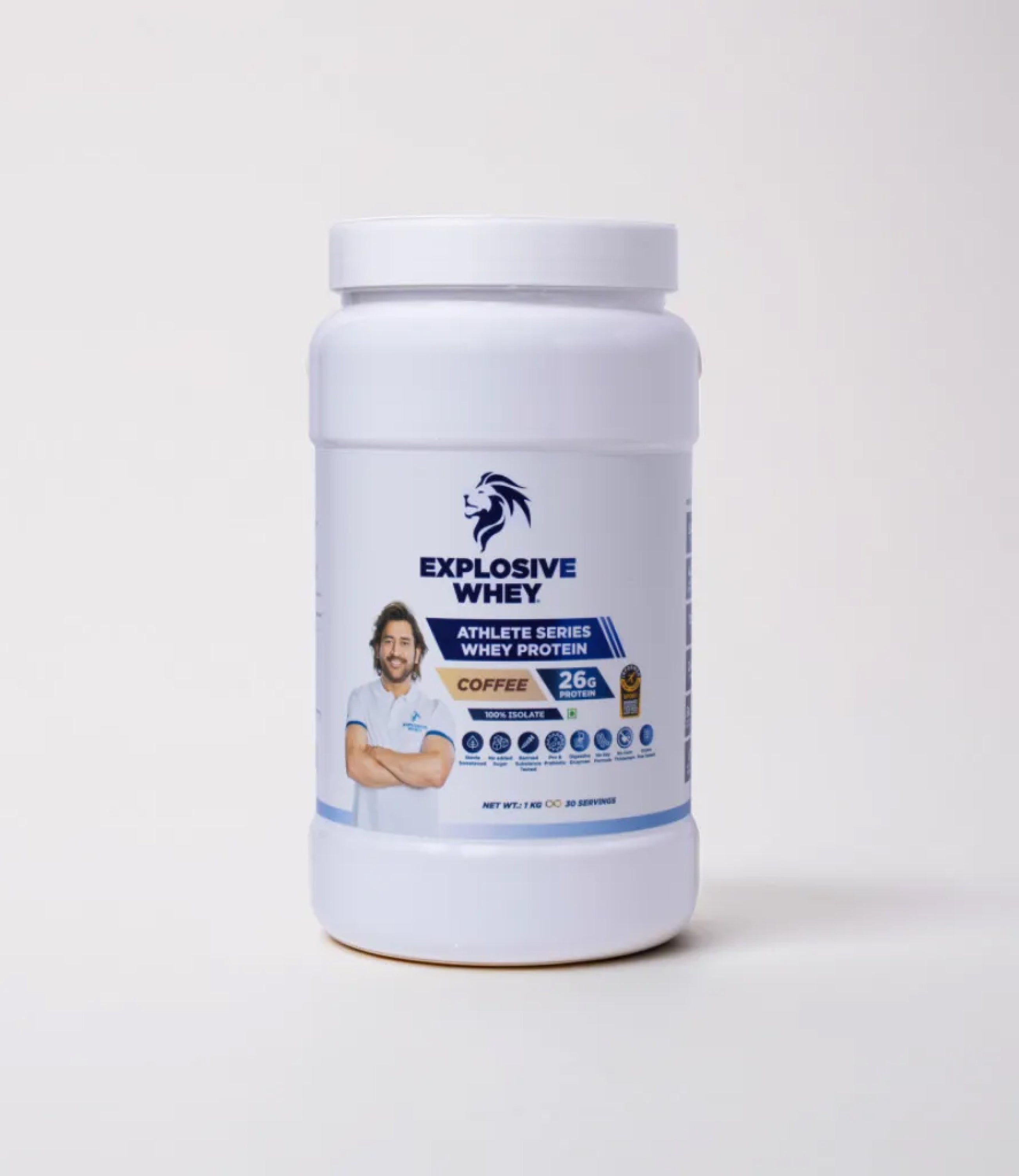
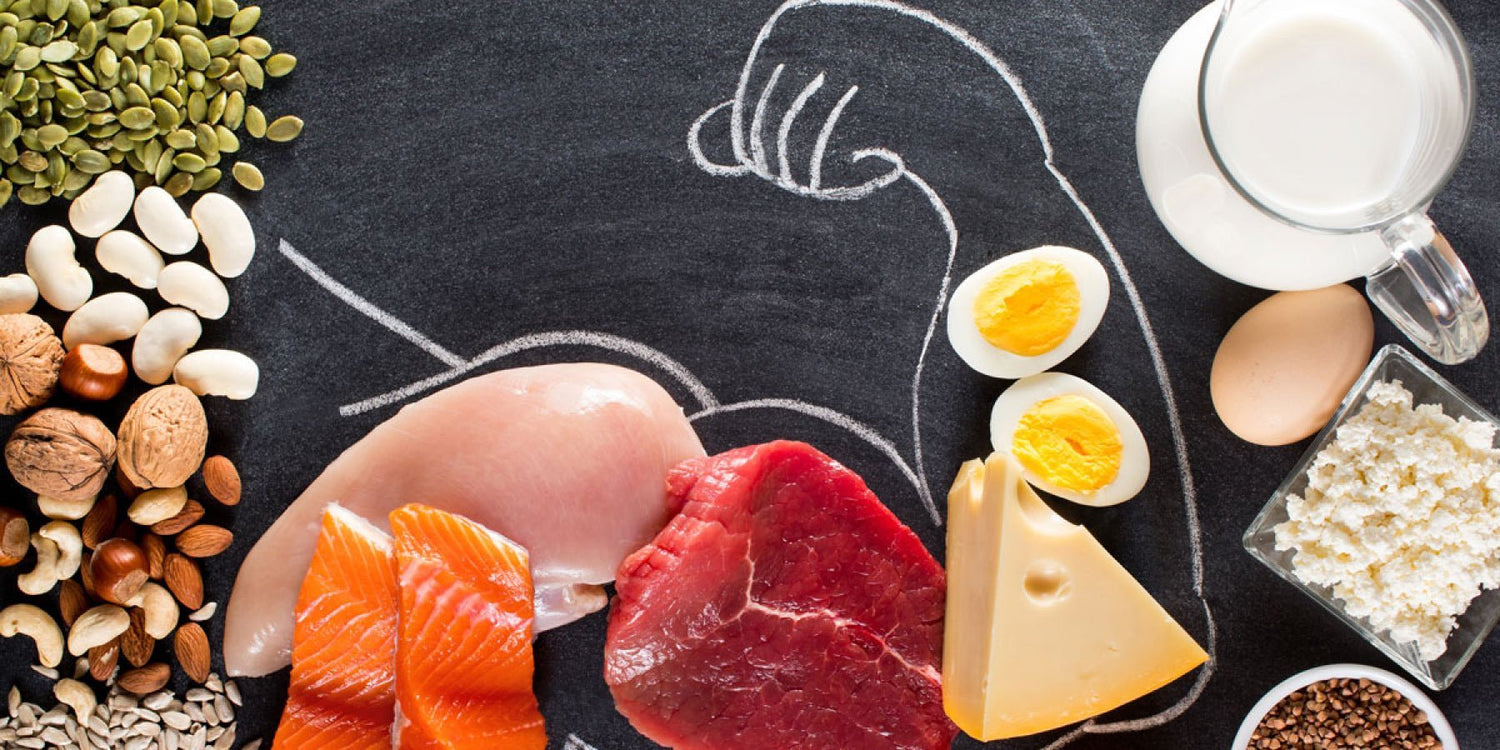
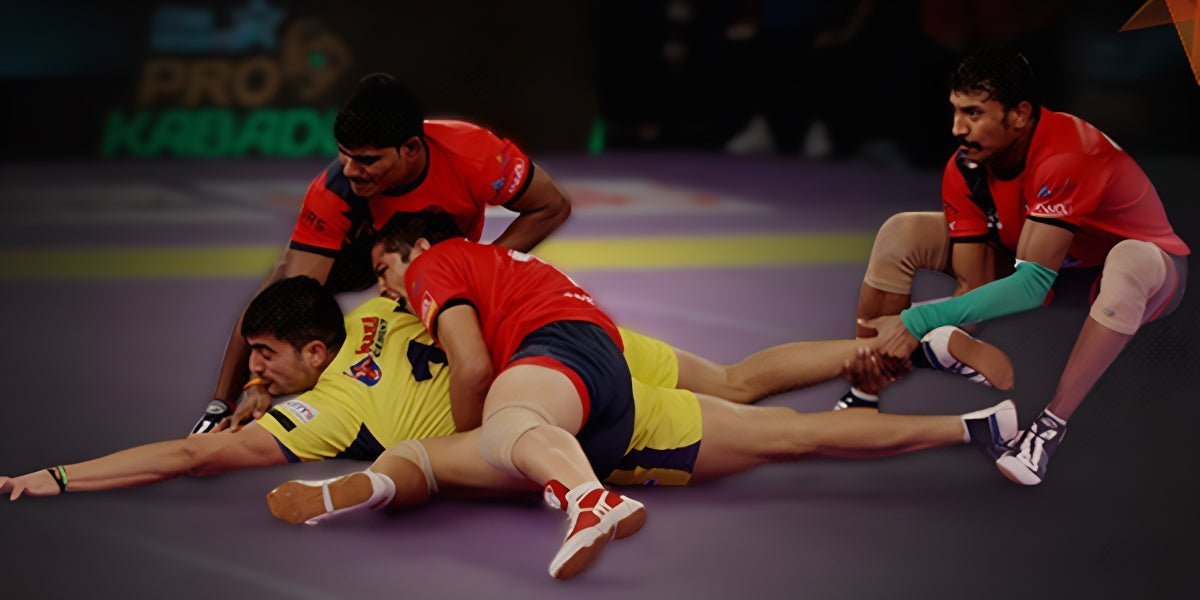
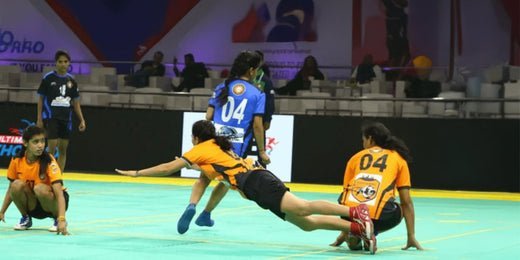
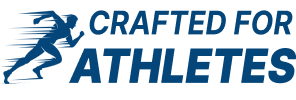
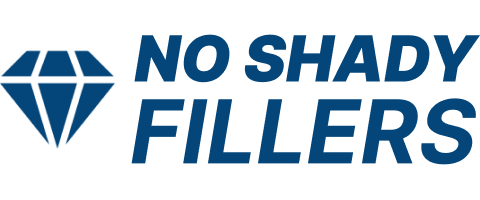

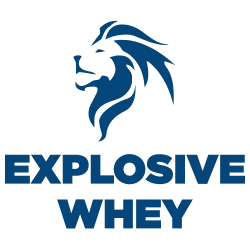

Leave a comment
This site is protected by hCaptcha and the hCaptcha Privacy Policy and Terms of Service apply.